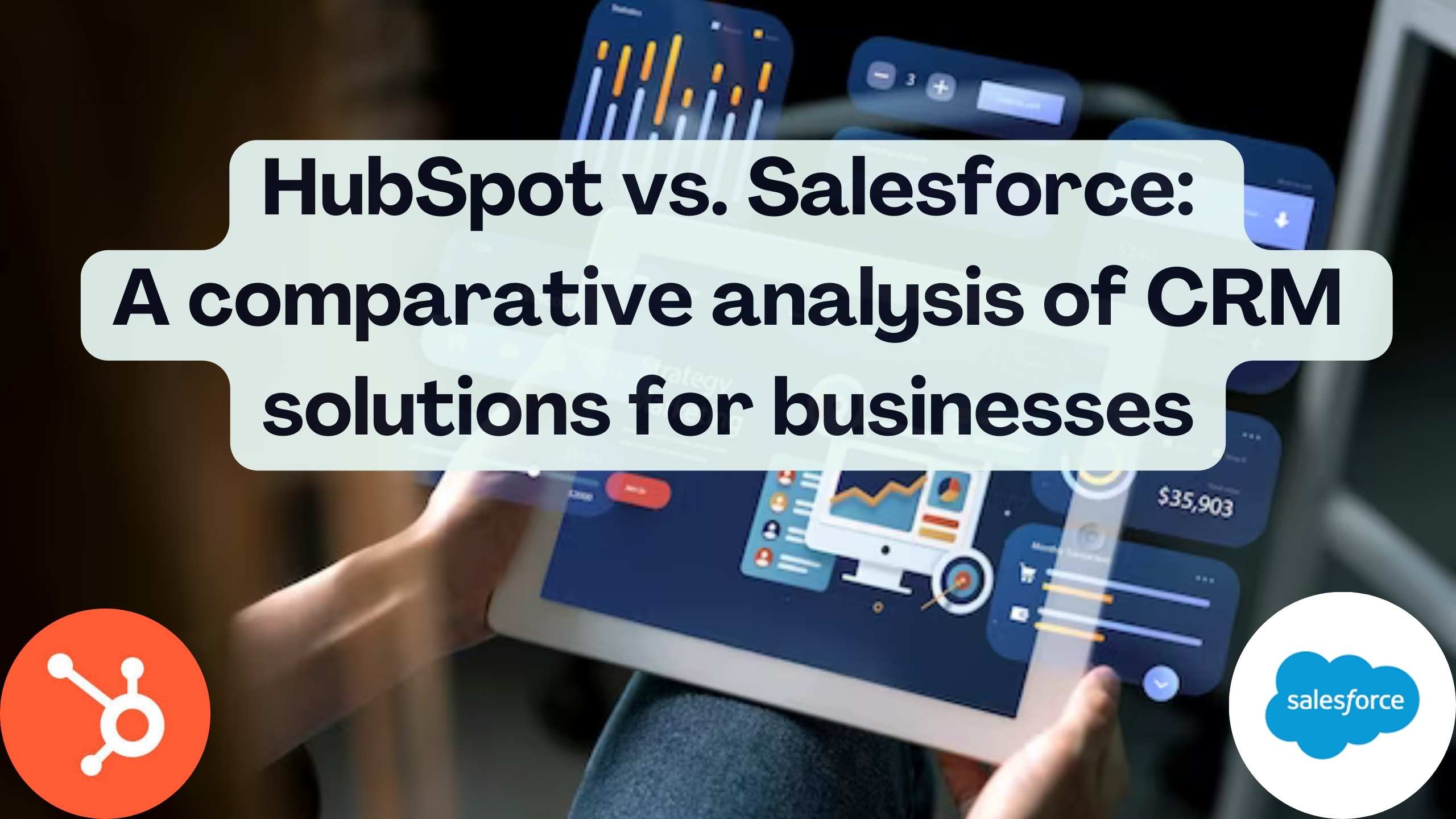HubSpot vs. Salesforce: A comparative analysis of CRM solutions for businesses
- Proposal Software Customer Relationship Management


HubSpot vs. Salesforce: A Comparative Analysis of CRM Solutions for Businesses
In the realm of Customer Relationship Management (CRM) solutions, two giants stand out: HubSpot and Salesforce. Both platforms offer powerful features and capabilities designed to streamline sales, marketing, and customer service processes for businesses of all sizes. In this comparative analysis, we’ll explore the strengths and weaknesses of each platform to help you make an informed decision for your business needs.
Understanding HubSpot CRM
HubSpot CRM is renowned for its user-friendly interface and robust suite of tools designed to enhance customer engagement and drive growth. Key features of HubSpot CRM include:
- Integrated Marketing Tools: HubSpot offers seamless integration with marketing automation tools, allowing businesses to create targeted campaigns and track customer interactions across multiple channels.
- Customizable Workflows: With HubSpot CRM, businesses can create custom workflows to automate repetitive tasks, streamline processes, and improve team efficiency.
- Detailed Analytics: HubSpot provides comprehensive analytics and reporting capabilities, enabling businesses to track key metrics, measure campaign performance, and make data-driven decisions.
Exploring Salesforce CRM
Salesforce is a market leader in CRM solutions, known for its scalability, flexibility, and extensive customization options. Key features of Salesforce CRM include:
- Scalable Platform: Salesforce offers a highly scalable platform that can accommodate the needs of businesses of all sizes, from startups to enterprise-level organizations.
- Advanced Customization: Salesforce provides extensive customization options, allowing businesses to tailor the CRM experience to their unique requirements and workflows.
- AI-Powered Insights: Salesforce Einstein, the platform’s AI-powered analytics engine, delivers valuable insights and predictive analytics to help businesses identify trends, forecast sales, and make informed decisions.
Comparative Analysis: HubSpot vs. Salesforce
Ease of Use and Implementation
HubSpot CRM is known for its intuitive interface and easy implementation process, making it ideal for small to medium-sized businesses with limited resources. On the other hand, Salesforce offers unparalleled flexibility and customization but may require more time and expertise to set up and configure.
Features and Functionality
Both HubSpot and Salesforce offer a wide range of features and functionality to support sales, marketing, and customer service efforts. While HubSpot provides integrated marketing tools and simplified workflows, Salesforce excels in scalability and advanced customization options.
Pricing and Affordability
HubSpot CRM offers a free tier with basic features, making it accessible to businesses of all sizes. However, as businesses grow and require more advanced features, they may need to upgrade to paid plans. Salesforce, on the other hand, offers tiered pricing options based on the needs and scale of the organization, making it suitable for businesses of all sizes.
Conclusion: Choosing the Right CRM Solution
In conclusion, both HubSpot and Salesforce offer powerful CRM solutions designed to help businesses manage customer relationships, drive sales, and foster growth. The choice between the two ultimately depends on the unique needs, scale, and resources of your organization. By conducting a thorough comparative analysis and evaluating factors such as ease of use, features, functionality, and pricing, businesses can make an informed decision that aligns with their goals and objectives. With the right CRM solution in place, businesses can unlock new opportunities, streamline processes, and deliver exceptional customer experiences in today’s competitive landscape.
At Subscribed.FYI, we understand the importance of choosing the right CRM solution for your business. Our platform offers a curated selection of SaaS products tailored to CRM and customer engagement, empowering businesses to make informed decisions and drive growth.








